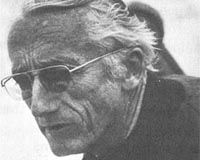 |
Berlin (UPI) May 26, 2010 Will Royal Dutch Shell do to the Arctic what BP did to the Gulf of Mexico? That's the question troubling environmental experts across the globe ever since the Dutch minerals giant Shell announced its plan to begin exploratory oil drilling this summer in the Beaufort and Chukchi seas, two of the most pristine ecosystems on the planet. The seas near the Arctic National Wildlife Refuge are home to endangered bowhead whales and threatened polar bears, Beluga whales, walruses, various kinds of seals and numerous bird and fish species -- right down to the krill, the tiny shrimp-like invertebrates that form the basis of the marine food chain. Moreover, millions of sea mammals and birds head there to calve and nest each year. Subhankar Banerjee, a photographer, writer and activist from India who has spent much of the past 10 years of his life in the Arctic, said drilling there could have disastrous consequences. "If oil drilling begins in the Arctic seas and anything goes wrong, the nature of the disaster in the calving, nesting and spawning grounds of so many creatures would be hard to grasp," Banerjee wrote in the European Energy Review, an online energy publication. Shell owns two leases in the Chukchi and Beaufort seas but, before it can dispatch its drilling ships, the company needs air quality permits from the Environmental Protection Agency as well as final authorization from U.S. Interior Secretary Ken Salazar. Pressed by Washington over the potential dangers of drilling in the Arctic, Shell claims the wells it uses aren't as complex as the the BP-operated Deepwater Horizon drilling platform and thus safer. "We won't drill in Alaska if we can't do so safely and responsibly," Shell Chief Executive Officer Peter Voser was quoted as saying by British newspaper Daily Telegraph. "The characteristics of the fields are different to those in the Gulf of Mexico -- less deep and there is less pressure. We intend to drill this summer if allowed." So is there no reason to be concerned? Well, everyone knows about the trouble BP has in containing and cleaning up the spill in the gulf, where temperatures are warm and seas relatively calm. The drilling platform it operated exploded and sank April 20 -- that's more than five weeks ago -- and oil is still gushing into the ecologically fragile gulf. A spill in the Arctic would be even worse, observers say. Environmentalists are concerned about the hurricane season to begin in the gulf next month but in the Arctic the storms blow year-round. Due to the harsh weather conditions and the drifting ice sheets, a cleanup operation in the winter would be very difficult. Even during spring and autumn, it's possible that vessels might not make it to the site for days. Moreover, "toxins left behind from oil spills will take far longer to break down in the frigid climate," Banerjee writes. "Bad as the gulf may be, a damaged Arctic will take far more time to heal." Banerjee's first book, "Arctic National Wildlife Refuge: Seasons of Life and Land," received media attention in 2003 when an accompanying exhibition at the Smithsonian National Museum of Natural History was censored at a time when U.S. President George W. Bush said one of his top energy priorities was to open the refuge to oil and gas development. In a fierce Senate debate, U.S. Sen. Barbara Boxer, D-Calif., urged her colleagues who called the refuge a "frozen wasteland" to read Banerjee's book. The attention that followed ultimately led to the abandoning of exploring the ANWR. Banerjee hopes that Washington, aware of the devastation in the gulf, will act similarly when it comes to drilling in the Arctic. "President (Barack) Obama and Secretary Salazar should stop this folly now," he wrote. "It's time to put a stop to Shell's drilling plan in America's Arctic Ocean for this summer -- and all the summers to come."
Share This Article With Planet Earth
Related Links Powering The World in the 21st Century at Energy-Daily.com
 Cousteau dives into 'nightmare' US oil slick
Cousteau dives into 'nightmare' US oil slickWashington (AFP) May 26, 2010 Legendary explorer Jacques Cousteau would have been "horrified" by the devastation being wrought by a huge Gulf of Mexico oil spill, his grandson said after diving down into the seas. "There's a chemical dispersant/oil mixture that is now... over vast areas of the Gulf and as we feared it's not concentrated at the surface," Philippe Cousteau Jr. told CNN, adding "this absolutely is a nightma ... read more |
|
| The content herein, unless otherwise known to be public domain, are Copyright 1995-2010 - SpaceDaily. AFP and UPI Wire Stories are copyright Agence France-Presse and United Press International. ESA Portal Reports are copyright European Space Agency. All NASA sourced material is public domain. Additional copyrights may apply in whole or part to other bona fide parties. Advertising does not imply endorsement,agreement or approval of any opinions, statements or information provided by SpaceDaily on any Web page published or hosted by SpaceDaily. Privacy Statement |